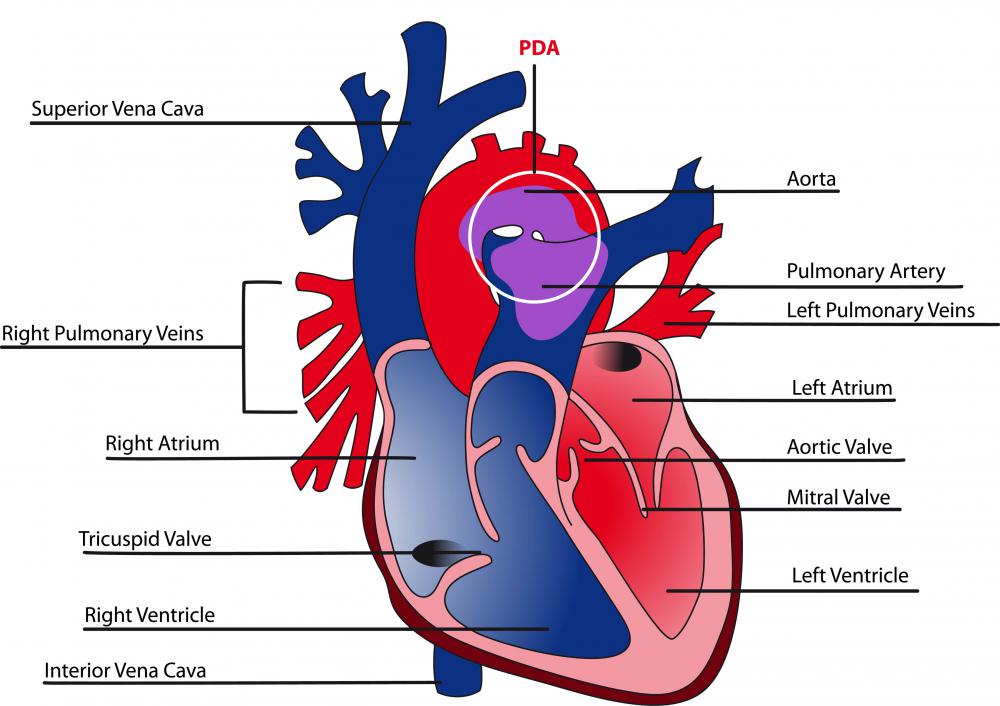At TheHealthBoard, we're committed to delivering accurate, trustworthy information. Our expert-authored content is rigorously fact-checked and sourced from credible authorities. Discover how we uphold the highest standards in providing you with reliable knowledge.
What is Congestive Heart Disease?
Congestive heart disease is a commonly misapplied term for the condition called congestive heart failure (CHF). When you see the initials CHD, this tends to refer to congenital heart disease or defects. Unlike heart disease that is acquired later in life, congenital heart defects are inherited and present at birth. What makes matters even more confusing is that people with CHDs may have congestive heart failure.
It’s important to understand that congestive heart failure doesn’t mean the heart is presently failing. Instead, it means the heart is working harder than it needs to but still accomplishing less than it should. Failure for the heart to adequately supply the body’s organs and tissues with oxygen rich blood can result in numerous symptoms, and causes of congestive heart failure can be extremely varied. Some causes include narrowing of arteries, heart attacks in the past, hypertension, CHDs, abnormal enlargement of the heart, and certain infections.

Symptoms of heart failure can be varied and are based on severity of underlying causal factors. People may feel persistent fatigue, and notice water retention or swelling of hands and feet. Other symptoms include shortness of breath, inability to exercise, and a cough that doesn’t go away, and which may produce pink or slightly bloody mucus. The heartbeat may sound weak or irregular in rhythm.

Under some circumstances, congestive heart failure occurs suddenly, and is called acute heart failure. The symptoms are similar but they occur very quickly instead of over a long time period and they may be accompanied with chest pain. If you develop these symptoms in the space of a few hours, you should contact emergency services immediately.
If your doctor suspects congestive heart failure, you will likely have several tests to determine cause. These can include x-rays, magnetic resonance imaging (MRI) and computerized tomography (CT) scans, and special sonograms of the heart called echocardiograms. You may also require heart catheterization, which looks at the structures of the heart and arteries to determine blockages, narrowing, or failure. Identifying cause is important, since treating CHF depends on understanding and addressing underlying conditions.

Due to the vast variety of conditions that can result in congestive heart failure, treatment is difficult to describe. People may require medications like blood pressure meds, blood thinners, meds to make the heart work more efficiently, drugs that help control heart rhythm, or diuretics to reduce fluid retention. Causes may also need surgical treatment, which can again vary from placing stents to open arteries, to performing surgery to regulate heart rhythm. Sometimes, especially when CHDs are present surgery may be complex and involve fixing defects of the heart like replacing valves. Under certain circumstances CHF may necessitate heart transplant.

Though you can’t do much to preventing many congenital heart defects or CHF acquired through viral or bacterial infection, there may be plenty of ways to lower risk of CHF caused by most forms of cardiovascular disease. Eating a heart healthy diet through life and getting plenty of exercise can reduce risk of most forms of heart disease. If you have family history of heart disease, you need to make your doctor aware of this so that treatments are given as needed and potential for developing CHF is carefully watched.
AS FEATURED ON:
AS FEATURED ON:















Discussion Comments
Whenever our heart doesn't work properly then we started to think that we haven't as much energy as before, that we get tired very soon and out of breath more quickly. This is because the tissues aren’t getting enough oxygen and is due to excess fluid in the tissues. We may feel short of breath when they lie down because of fluid congesting the lungs. Shortness of breath when you exert yourself or when you lie down, rapid or irregular heartbeat, reduced ability to exercise, sudden weight gain from fluid retention. Lack of appetite and nausea, chest pain are some of the symptoms of heart disease.
Post your comments